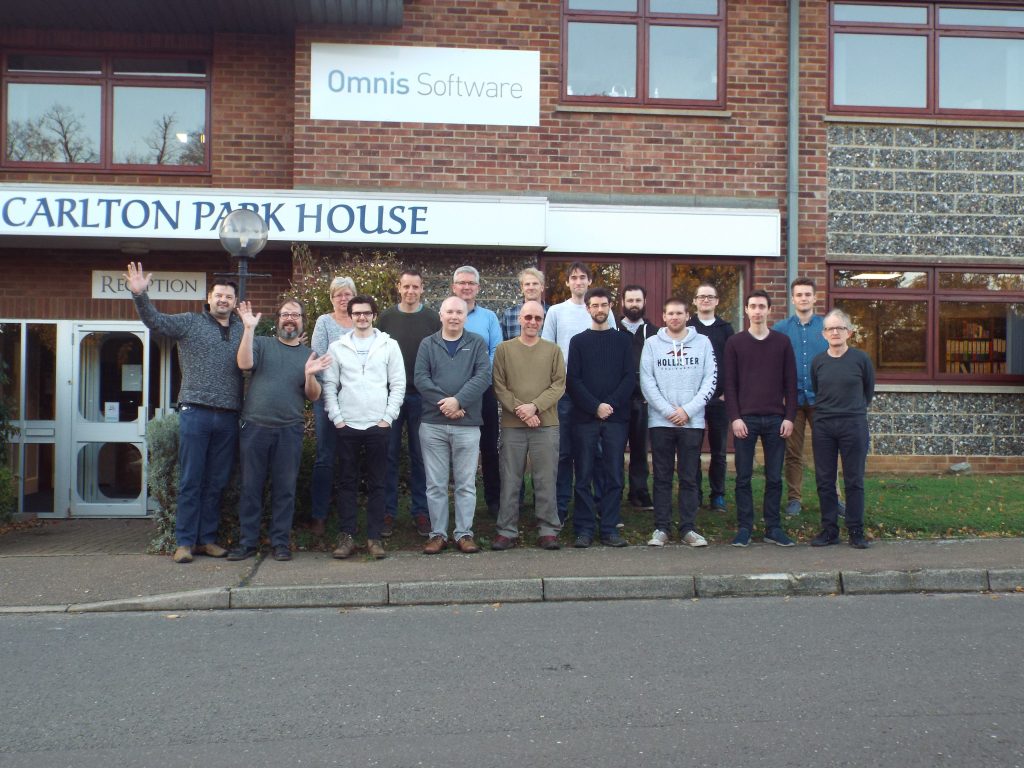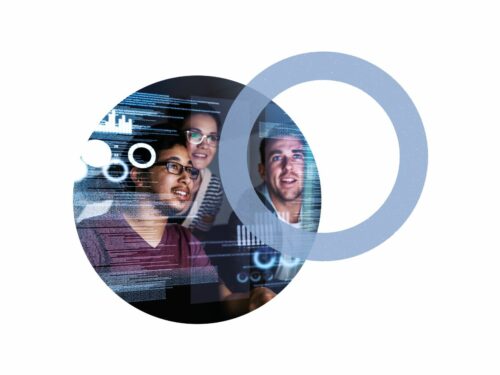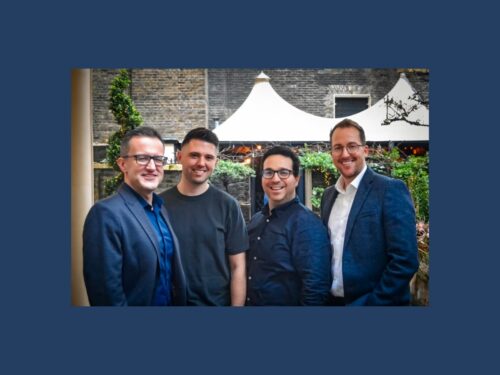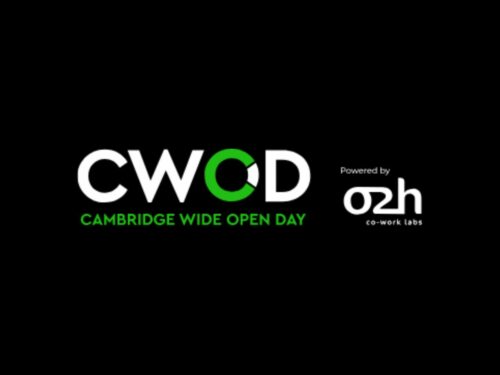If you are struggling to train and retain your technicians, then you might need Netmatters’ Skills Bootcamp. Our...
Member Spotlight – Omnis

Can you tell us what Omnis Studio is and your business?
Stephen: Omnis is a Suffolk based software company providing application developers a platform to build world class desktop/web/mobile applications. Our HQ and main development team is in Suffolk, but we have offices and distributors across the globe selling to over 50 countries.
Omnis Studio is a platform for developers to create applications quickly and easily, using one tool that is completely cross-platform. They write the code once and deploy it on Mac, Windows, web, smartphone or a mixture of platforms. It doesn’t matter which phone operating system, whether it’s iOS or Android. With Omnis Studio, developers can be significantly more productive, and the tool enables them to write quality code first time and debug very quickly.
Bob: In addition to our product, we provide services, too. It’s a complete spectrum of involvement from us. We can go as far as writing the application for the end user, or we might simply be involved in remote support of the finished application.
Stephen: We also provide free training with the Omnis Academy, that’s another key function. It’s one way of helping people quickly get up to speed, but it also helps seed the future generations of Omnis developers. We provide online training and a 3 day in-classroom training course.
Omnis Studio can accelerate a product launch. How do you support this process?
Stephen: Omnis is about using resources you have already inhouse more efficiently. The speed and efficiency of development is a massive strength; what we usually say is that if you have a team of five developers working on a product, then you might only need a team of three developers with Omnis. It’s faster than using anything like PHP or .NET. Besides, those need other technologies to support them. PHP is a good example because it is free, but it will take you much longer to develop your application. So, you might think you’re saving time and money, but you’re really not.
One of the key strengths of Omnis is the way the tool works. It enables the developer to create the code, and to check it as they’re going along. The debugging part allows them to create really good quality code straight away, and it’s really readable. That means they’re creating a product with less bugs in it, which really speeds up the development cycle.
Bob: In our most recent version, when it’s deployed at the customer side, as long as you have secure internet access to that site, you can debug on the machine, make a code change there and then and restart the application. Being able to debug live, and make changes live, is obviously a massive benefit.
What are some of the common mistakes you see when it comes to bringing a product to market?
Bob: Often, people don’t ensure they understand the problem they’re solving – and they specify a solution that does not match the expectations of the end users. You have to find that middle ground between creating the minimum features which do the job required, without running the risk of overengineering it. We see this all the time – teams get caught up in sitting and planning for so long that they add a lot of time to the process. All that can be avoided by really assessing and specifying features that are actually beneficial to the end users.
On the other hand, when we work with customers looking to either upgrade or evolve an application, we see that it’s challenging to get the users to want to change, because they’re familiar with the system they use. We’ve learned you have to bring the end user along with you by involving them in that specification process. Using our platform, you can get a business solution completed very quickly. It allows you to show something to the end users to allay their fears that this brave new world is going to be a challenge to them.
As one of the market leaders in your space, how do you distinguish yourself from your competition?
Stephen: The Omnis developer community is fantastic. If you met the Omnis community, you’d be amazed at how enthusiastic they are about helping each other, even though they may be in competing businesses. They have a passion for Omnis and actively promote Omnis to other developers.
Another consideration is the expected life span of the application. If you buy something off the shelf now, chances are you’ll use it for five to seven years, and then you’ll throw it away and start again. Or you’ll try to hobble along with something that’s not capable of changing with you. If you use something like Omnis, you can use it and you can keep developing it, and in twenty years’ time, you’ll still be using a version of it. Instead of spending millions and millions of pounds, you may be spending hundreds of thousands of pounds.
How important is interoperability in the public sector, for instance in healthcare?
Bob: The FHIR interface is used in healthcare. If you want to produce anything in healthcare, that interoperability standard is an absolute condition. If you can’t access the data in a secure way, you can’t do anything. Our open interface allows people to write their own bespoke components, to do things inside the platform, or more importantly, to communicate openly with other systems. It’s imperative that people can use our platform either as a single solution, or as part of a layer of tooling that interoperates without issue, to provide that final solution. We have had successful healthcare projects in the past – and interoperability is a huge part of what we bring to the table. Being a tool to connect disparate systems is key to what makes us successful.
Stephen: In the public sector, there are a lot of legacy systems, so they need a tool that can access that data and use it in a meaningful way. Organisations don’t want to waste their investment on their existing applications and databases.
Looking more widely at the requirements of other industries – nowadays, it’s all about the ability to use an application on the road, as it were. Whether they’re visiting customer sites or they’re in a field, people will be using different versions of the same tool, often accessing the same data source.
You have been in the business for decades. How has the way we look at data changed?
Bob: If you go back 30 years, it was all about minimising the amount of data that was transferred, and how much memory you took up on a machine. If you weren’t mindful of those limitations, you would face performance problems. Today, the challenge for a company like ours is finding an innovative way for the user to comb through the huge amounts of data and presenting it in a meaningful way. We work carefully on our user interfaces.
The internet has led us to be more informed, but also more critical. Twenty years ago, you wouldn’t have known what other solutions were available from competitors, so you stuck with what you had. There is much more choice now, and we expect everything to be instantaneous. That’s a big part of the work we do; we develop innovative controls to present data in the way that people expect. If you leave the user behind on that journey, the application will always be viewed as a failure.
Omnis has been based in Suffolk since your founding in 1979. Have you ever felt tempted to move to London?
Bob: Certainly, it’s something that’s been considered. If we had challenges with recruitment, that might change our position.
Recruitment isn’t easy anywhere, and you have to balance that with staff retention. Suffolk is an attractive place for people to base themselves to live and raise families. That has been an asset for us.
It is a challenge – it’s a rural location, and unfortunately house prices are on the rise. But for people looking to work in the Cambridge area, it’s even worse! Our location works well for us. It’s outside of the most expensive pockets, but all the lovely amenities are within a 15-20-minute drive. There’s the coast, you can get to London easily. However, we do have to plan our commutes. We have customer days instead of individual meetings, where we might meet a dozen people at a single venue in a single day. But our continued success as a business proves being based in Suffolk has worked well for our business.
What is the key to building a great team in this part of the country?
Bob: In recent years, we’ve had success with recruiting people when we have wished to expand. We’re a very open company, and we look for something about the person themselves rather than just their academic position or their background. Some of our best developers have no higher education academic qualification other than just the perfect aptitude for writing computer source. Being a slightly smaller company, we can look for people who match our work philosophy and have the right aptitude for the position.
Can you tell us about your plans for expansion? Is the company going to continue to grow?
Bob: We’re in a great position to plan to expand and improve our team, both on the consultancy and development sides. We have a presence in the United States, and that market is a key target for us. There we have some highly successful applications that are developed in our platform. Stephen has just returned from our North American user conference for this year, which was highly successful. And there’s already a demand to set next year’s venue. As we get more customers, we need a bigger support team, which could be here or in our German office. We already have recruitment open for technical staff in the US, and we always have an open mind for UK applicants that approach us. For aspiring people in Suffolk who want to work in software development, we’re a magnet.
Are there plans to develop new products?
Bob: We work very hard to keep up to date. It would be pure folly to suggest that we would never consider creating new products or providing new services in addition to the existing ones. But we’re very fortunate to have a very well-received and robust product and service offering in place. So strategically, it is a strong aim for us to pursue our existing product and service offerings.
Stephen: It does take a lot of work to keep up to date. We bring out periodical releases. We’re at version 10 now. Going from version 8.1 to 10 was an investment of 25,000 business hours. So, as you can imagine every release is a major development. Standing still is not an option.
What are your gateways into the Suffolk business community?
Stephen: In East Anglia there is a wealth of groups such as Norfolk Developers, Suffolk Developers, Sync Ipswich and the Chamber of Commerce – these are organisations that create links within the Tech community. Between it all, there’s the Tech East connection that helps join the dots between these pockets of developers. All of these groups have very friendly and informative meetups. I would recommend anyone in the Suffolk Tech community to get involved and support these groups.
You are a member of the Suffolk Chamber of Commerce and Tech East. What is your involvement?
Bob: You can compare it to how the Omnis community functions. If you want to be part of something, you have to feedback, you have to use it and engage. So, with TechEast and the Chamber of Commerce, one thing we take part in is the networking, so that people are aware that we exist. At the Tech East events, we get to meet potential customers, developers, entrepreneurs and investors who speak the same language as us and face the same business and technical challenges that we do. Having sensible conversations with your peers is so important.
When it comes to Tech East, the more you use it, the more valuable it becomes. It’s also great that they’re able to get the news out on local businesses, and their website supports that.
What’s next for the Omnis Academy?
Stephen: We’d like to roll out the Omnis Academy to Higher Education Institutions and schools. We’d love to work with anyone who is teaching STEM projects or computer science courses that include application development. They’d get access to the platform, and they’d be able to teach the whole process of developing an application, using Omnis as the platform.
There is a lot of benefits to using Omnis in education this way. It means that the teacher is more likely to be marking completed projects, as it’s a much faster environment. Additionally, the language is transferable, so it’s a transferable skill. Learning Omnis means students get a fantastic grounding, which they can take with them into other businesses. It’s a graphical language, so they will be able to pick up any other language much more quickly. We’d like to offer the software to educational establishments, and we can help with training and licencing. We’re inviting anyone who is interested in working with us to get in touch.

Do Your Team Need Coding & Web Development Training?
Amazon Agency Optimizon Continues Expansion with Strategic Acquisition of Marketplace Power
LONDON – Optimizon, a leading Amazon and e-commerce agency in the UK, is thrilled to announce the successful...
Cambridge Wide Open Day returns with ‘Be Curious’ Sci-Tech City-wide event
LEADING science companies and innovation parks will once again open their doors to showcase their contribution to...




